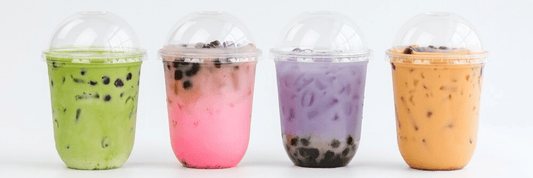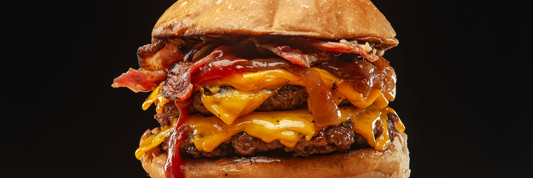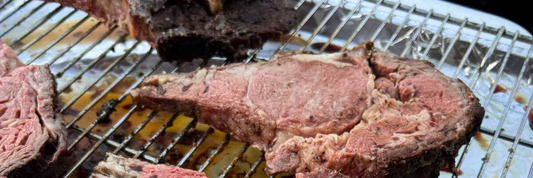Does Cola Contain Caffeine? Yes, Coca-Cola does contain caffeine. This naturally occurring stimulant is one of the reasons fans love the drink for its slight energizing qualities.
How Much Caffeine Is in Coca-Cola Compared to Other Beverages
Amount of Caffeine in a Standard Can of Coca-Cola (330ml)
In a typical 330ml can of Coca-Cola, you can expect to find approximately 32mg of caffeine. This is a modest amount compared to other caffeinated beverages, but enough to contribute to its characteristic flavor profile.
Comparing Caffeine in Coca-Cola to Coffee
When comparing Coca-Cola to coffee, the difference becomes quite apparent.
How Much Caffeine Does Coca-Cola Have Compared to a Cup of Coffee?
A standard cup of brewed coffee (about 240ml) contains approximately 95mg of caffeine, which is nearly three times the caffeine content found in a can of Coca-Cola. This substantial difference is why coffee is often associated with a stronger pick-me-up effect.
Comparing to Other Soft Drinks
Caffeine levels can vary significantly among popular soft drinks.
How Much Caffeine Do Pepsi, Sprite, and Mountain Dew Have?
- Pepsi: Similar to Coca-Cola, a 330ml can of Pepsi contains about 38mg of caffeine.
- Sprite: In contrast, Sprite is caffeine-free, making it a suitable option for those who wish to avoid caffeine entirely.
- Mountain Dew: A 330ml can holds about 54mg of caffeine, making it one of the higher-caffeine soft drinks on the market.

Comparing to Energy Drinks and Tea
Energy drinks and tea also have varying caffeine contents.
Red Bull, Monster, and the Amount of Caffeine in Teas
- Red Bull: An 250ml can contains about 80mg of caffeine, providing a more substantial energy boost than Coca-Cola.
- Monster: A regular 473ml can has around 160mg of caffeine.
- Tea: The caffeine in tea varies widely, but an 240ml cup of black tea typically has about 40-70mg.
Why Does Coca-Cola Contain Caffeine?
Historical origins of Coca-Cola and the use of caffeine
Coca-Cola was originally created in the late 19th century. Its initial recipe included coca leaves and kola nuts, both of which contain caffeine. Caffeine became an integral part of Coca-Cola's identity, aligning with its image as a refreshing tonic.
Caffeine and its role in enhancing flavor
Caffeine plays a significant role in the overall flavor profile of Coca-Cola. It adds complexity and depth, contributing to that familiar taste that customers love. Additionally, caffeine can enhance the drinker’s perception of sweetness, making it feel more refreshing.
The Health Effects of Caffeine in Coca-Cola
Benefits of caffeine in moderation
Caffeine, when consumed moderately, offers several benefits including increased alertness and a boost in energy levels. It can enhance mental focus, making it a popular choice for individuals needing a little lift during the day.

Risks of consuming too much caffeine from Coca-Cola
Excessive caffeine intake can lead to various health issues. These may include insomnia, increased heart rate, and anxiety. Even a popular soft drink like Coca-Cola can contribute to these problems if consumed in large quantities.
Groups of people who should limit caffeine
Certain populations should be cautious with caffeine intake:
- Children: Their bodies are more sensitive to caffeine, and too much can lead to overstimulation.
- Pregnant Women: High caffeine consumption may increase the risk of complications.
- People with Cardiovascular Problems: Individuals with heart issues should avoid excessive caffeine, which may exacerbate their conditions.
Caffeine in Coca-Cola and the Recommended Daily Caffeine Intake
The Safe Amount of Caffeine Adults Should Consume Each Day
According to the World Health Organization, the safe daily caffeine limit for adults is approximately 400mg. Staying within this range is generally considered safe for most healthy adults.
How Many Cans of Coca-Cola Are Safe to Drink Each Day?
Given that a can of Coca-Cola contains about 32mg of caffeine, an adult could theoretically consume around 12 cans a day without exceeding the recommended caffeine intake. However, health experts recommend moderation, as drinking excessive amounts may lead to other health complications.
Does Coca-Cola Have a Caffeine-Free Version?
Introducing Caffeine-Free Coca-Cola (Coke Zero and Diet Coke)
For those looking to enjoy the taste without the caffeine, Coca-Cola offers caffeine-free versions. Both Coca-Cola Zero Sugar and Diet Coke provide the same familiar flavors without the caffeine content.
Options for People Who Need to Limit Caffeine
Caffeine-free Coca-Cola is ideal for individuals who are sensitive to caffeine or are advised to avoid it. These options allow fans of the drink to enjoy it without the associated caffeine effects.
Long-Term Effects of Drinking Caffeine-Free Coca-Cola
Effects on Sleep Habits and Mental Health
Caffeine can significantly impact sleep quality. For those avoiding it, caffeine-free Coca-Cola may help improve sleep habits and reduce stress levels, allowing individuals to maintain a healthier sleep schedule.
Effects on Cardiovascular Health
While caffeine contributes to Coca-Cola's flavor, both caffeine and sugar can impact cardiovascular health. Regular consumption of sugary beverages, including regular and caffeine-free varieties, can increase the risk of heart disease over time. Consumers should be mindful of sugar intake in conjunction with caffeine consumption.
Conclusion: Is Drinking Caffeine-Free Coca-Cola Safe?
Caffeine is indeed present in Coca-Cola, contributing to both its flavor and the experience of drinking it. While moderating caffeine intake is crucial for most individuals, caffeine-free options provide a safe alternative. If consumed responsibly, Coca-Cola and its caffeine-free counterparts can fit into a balanced diet. It's wise to be aware of personal health needs and to make informed decisions around beverage choices.







